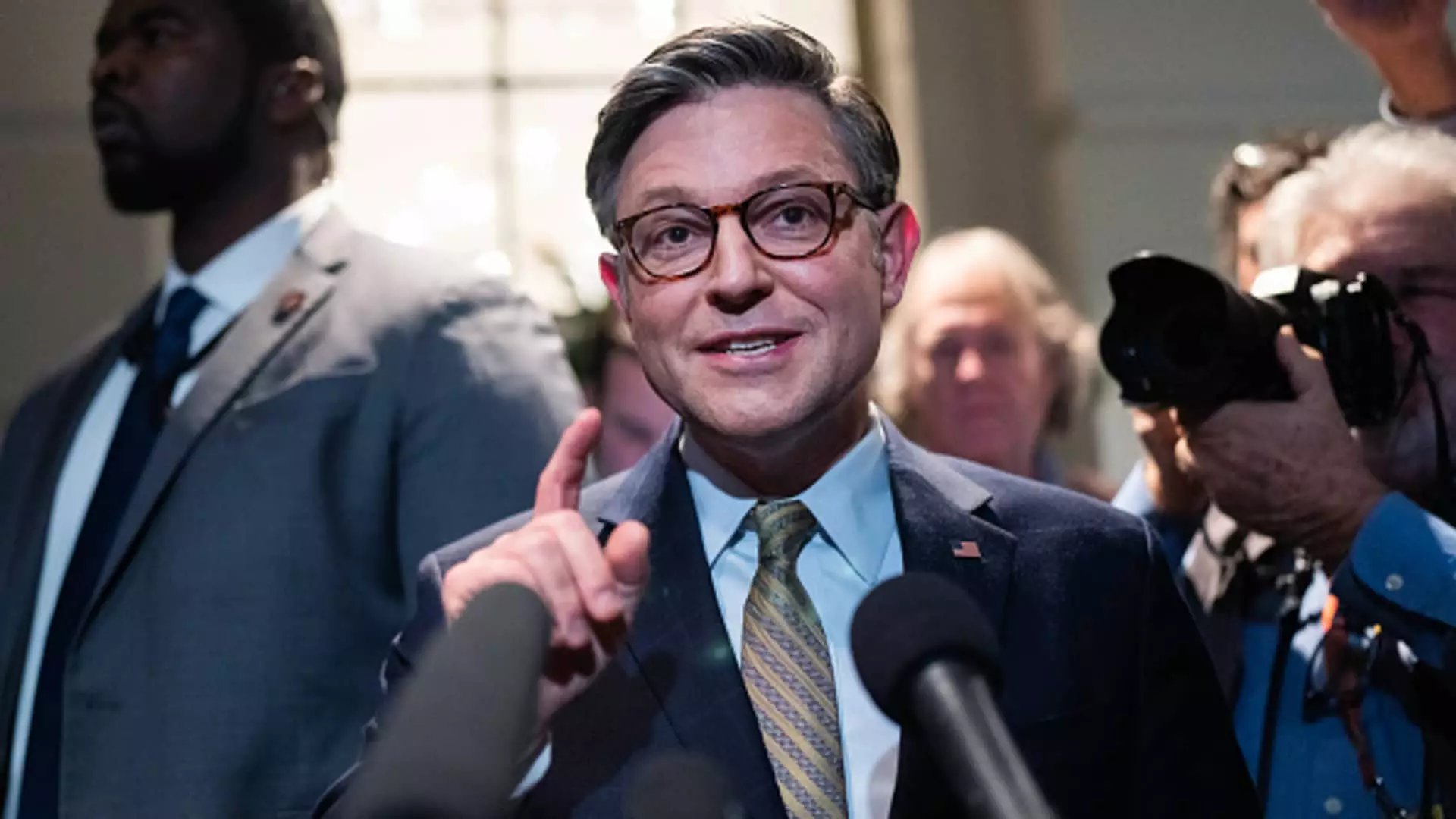In a moment steeped in urgency, the House of Representatives achieved a significant legislative milestone by approving a bipartisan federal spending bill just before the stroke of midnight on Friday. This was no ordinary legislative maneuver; it represented the complex interplay between political exigencies and the delicate balance of power in a divided government. The bill, designed to fund the federal government at existing levels for three more months, also includes critical provisions for disaster relief and agricultural support. By garnering significant backing from both Democrats and several Republicans, the bill illustrates a concerted effort to avert a shutdown, particularly as the holiday season approaches, placing hundreds of thousands of federal employees at risk of financial instability.
Yet, as the bill transitioned to the Senate, uncertainties loomed large. The Senate, characterized by its complex parliamentary rules, empowers individual senators to delay or obstruct legislation, amplifying the potential for last-minute drama. Given the bipartisan nature of the House’s approval, there was an expectation that the bill would smoothly make its way through the Senate, where the Democratic majority could facilitate its passage. However, the specter of procedural hurdles and the always-present potential for dissent lingered overhead.
This legislative process unfolded in the shadow of a whirlwind week for Capitol Hill, marked by chaos and conflicting demands. Tensions reached a boiling point following public criticisms from former President Donald Trump and billionaire donor Elon Musk, who derailed initial funding discussions. Their vehement objections crystallized around the contentious issue of the U.S. debt ceiling—a recurring flashpoint in American politics that continually influences fiscal policy debates.
Trump’s insistence that any agreement should include a two-year suspension of the debt limit exposed deep rifts within the Republican Party. This situation underscores the inherent challenges in negotiating budgetary measures in an environment rife with ideological divisions. The debt ceiling, a legally established cap on the total amount of money that the federal government is authorized to borrow, is traditionally leveraged by the minority party to exert pressure on the majority. The emerging irony in this scenario was that the push for a debt limit hike encountered staunch resistance from many hardline conservative Republicans, who felt the measure represented a step too far in governmental spending.
The narrative surrounding the passage of the spending bill invites a broader examination of political leadership. It raises critical questions about the effectiveness of elected officials in navigating the turbulent waters of partisan politics. The inability to solidify a cohesive plan—combined with the thwarted attempts at compromise—highlights the complexities that new leadership will face as they assume responsibility in the coming weeks.
In this context, the White House’s immediate response to the bill’s passing echoed the sentiments of strategic pragmatism. Although the bill fell short of encompassing the full agenda sought by President Biden, the administration recognized the necessity of forward momentum. Press Secretary Karine Jean-Pierre emphasized the importance of progressing with the legislation, highlighting Biden’s desire to alleviate potential harms to federal employees and government services during a critical period.
As the legislative process unfolds, the outcome will undeniably set a precedent for future dealings in Congress. The complexities of the House’s fractious nature were underlined by the fact that 38 Republicans defied party leadership to oppose Wednesday’s proposed legislation, a clear indicator that upcoming negotiations will necessitate astute coalition-building across both sides of the aisle.
The approval of this spending bill against a backdrop of political cacophony not only reveals the challenges of governance in a polarized climate but also serves as a reminder of the importance of bipartisan cooperation. As the Senate prepares to consider the measure, the potential for political maneuvering remains high. The coming days will test the mettle of lawmakers and their capacity to prioritize the needs of their constituents over party lines. Ultimately, the resolution of this budgetary impasse will play a crucial role in shaping the governance landscape for the incoming administration, underscoring the significance of collaboration in times of crisis.


Leave a Reply